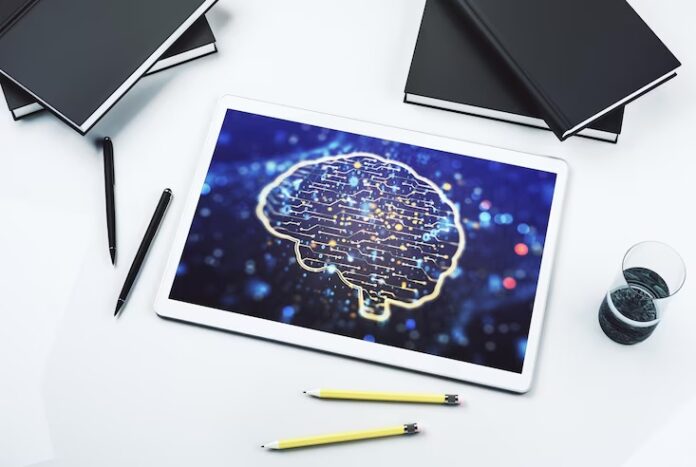Has this ever happened to you? You walk into a room and completely forget why you went there in the first place. Or maybe you’ve struggled to recall someone’s name just seconds after being introduced. If these scenarios sound familiar, you’re not alone. Memory Improvement lapses are a common part of life, but that doesn’t mean you have to accept them as inevitable.
In today’s fast-paced world, having a sharp and reliable memory is more important than ever. Whether you’re a student trying to ace exams, a professional juggling multiple projects, or simply someone who wants to stay mentally sharp as you age, improving your memory can have a profound impact on your overall well-being and success.
Key Takeaways:
- Discover the science behind memory function and the different types of memory.
- Learn practical techniques and strategies to enhance your memory and cognitive abilities.
- Explore the benefits of improved memory, from better learning and mental health to enhanced cognitive function.
- Understand the importance of maintaining brain health through exercise, social engagement, and a nutritious diet.
- Get actionable tips and resources to start your memory improvement journey today.
So, let’s dive in and explore the fascinating world of memory improvement!
What is Memory Loss?
Memory loss, or amnesia, is a condition characterized by the inability to store, retain, or retrieve information from memory. It can occur due to various factors, including:
- Aging: As we grow older, it’s normal to experience some degree of age-related memory decline.
- Injury or illness: Conditions like head trauma, stroke, or Alzheimer’s disease can lead to memory loss.
- Stress and depression: Chronic stress and depression can impair memory and cognitive function.
- Medications: Certain medications, including some sleep aids and antihistamines, can affect memory.
- Substance abuse: Excessive alcohol consumption or drug abuse can damage brain cells and impair memory.
Why is Memory Improvement Important?
Improving your memory isn’t just about remembering where you left your keys or recalling someone’s name. It’s a vital component of overall health and well-being, with far-reaching benefits:
- Improved cognitive function: A strong memory is closely linked to better cognitive abilities, such as problem-solving, decision-making, and critical thinking.
- Enhanced learning and memory: Whether you’re a student, a professional, or simply someone who enjoys learning new things, improving your memory can help you retain and apply information more effectively.
- Better mental health: Memory issues can contribute to feelings of frustration, anxiety, and low self-esteem. Improving your memory can boost your confidence and overall mental well-being.
Benefits of Improved Memory
Investing time and effort into improving your memory can yield numerous rewards:
- Improved cognitive function: By strengthening your memory, you’ll also sharpen your ability to focus, concentrate, and process information more efficiently.
- Enhanced learning and memory: With a better memory, you’ll be able to absorb and retain new information more easily, whether it’s for academic or professional purposes.
- Better mental health: Improving your memory can reduce stress and frustration associated with memory lapses, boosting your overall mental well-being and confidence.
Understanding Memory Function
To effectively improve your memory, it’s essential to understand how memory works and the different types of memory involved.
How Does Memory Work?
Memory is a complex cognitive process that involves several stages:
- Encoding: This is the initial stage where information is received and processed by the brain.
- Storage: The brain stores the encoded information for later retrieval.
- Retrieval: This is the process of recalling stored information when needed.
Types of Memory
There are several types of memory, each with its own unique characteristics:
- Short-term memory: This is a temporary storage system that holds information for a brief period, typically up to 30 seconds.
- Long-term memory: This is a more permanent storage system that can hold memories for an extended period, ranging from days to decades.
- Working memory: This type of memory allows you to temporarily hold and manipulate information while performing complex tasks.
Memory Consolidation
Memory consolidation is the process by which short-term memories are transferred and stored as long-term memories. This process is crucial for retaining and recalling information over an extended period.
Techniques to Improve Memory
Now that you understand how memory works, let’s explore some proven techniques to help you improve your memory and cognitive abilities.
Techniques to Improve Memory
Here are some effective techniques that can boost your memory:
- Repetition and rehearsal
- Association and visualization
- Mnemonics and acronyms
- Mindfulness and meditation
Repetition and Rehearsal
Repetition and rehearsal are powerful tools for strengthening memory. By repeatedly exposing yourself to information or practicing a skill, you reinforce the neural pathways in your brain, making it easier to recall the information later.
Association and Visualization
Associating new information with something you already know or visualizing the information can significantly improve memory retention. For example, you could create a vivid mental image or associate a new word with a familiar concept or object.
Mnemonics and Acronyms
Mnemonics and acronyms are memory aids that help you remember information by converting it into a memorable phrase, rhyme, or acronym. For instance, the acronym “ROYGBIV” can help you remember the order of colors in the rainbow (Red, Orange, Yellow, Green, Blue, Indigo, Violet).
Mindfulness and Meditation
Mindfulness and meditation practices have been shown to improve memory and cognitive function by reducing stress and increasing focus and attention. Regular practice can enhance your ability to concentrate and remember information more effectively.
Strategies for Improving Memory
In addition to specific techniques, there are several strategies you can employ to boost your memory and cognitive abilities.
Strategies for Improving Memory
- Organizing and structuring information
- Using visual aids
- Practicing active recall
- Getting enough sleep
Organizing and Structuring Information
Organizing and structuring information in a logical and meaningful way can significantly improve your ability to remember and retrieve it. Consider using outlines, mind maps, or other visual aids to help you categorize and structure information.
Using Visual Aids
Visual aids, such as diagrams, charts, and images, can be powerful tools for enhancing memory. They help create mental associations and make information more memorable and easier to recall.
Practicing Active Recall
Active recall involves actively retrieving information from memory, rather than simply re-reading or re-exposing yourself to it. This practice can strengthen the neural pathways involved in memory and improve your ability to retrieve information when needed.
Getting Enough Sleep
Sleep plays a crucial role in memory consolidation and overall cognitive function. During sleep, your brain processes and consolidates memories, making them more stable and easier to recall. Aim for 7-9 hours of quality sleep each night to support healthy memory function.
Maintaining Brain Health
Improving your memory isn’t just about techniques and strategies – it’s also about maintaining overall brain health. By taking care of your brain, you’ll not only enhance your memory but also support cognitive function and prevent age-related cognitive decline.
Maintaining Brain Health
- Exercise and physical activity
- Social engagement
- Cognitive stimulation
- Nutrition and diet
Exercise and Physical Activity
Regular exercise and physical activity have been shown to improve brain health and cognitive function. Exercise increases blood flow to the brain, promoting the growth of new brain cells and the formation of new neural connections, both of which are essential for memory and cognitive function.
Social Engagement
Staying socially engaged and maintaining strong social connections can have a positive impact on brain health and memory. Social interaction and mentally stimulating activities can help keep your brain active and alert, reducing the risk of cognitive decline.
Cognitive Stimulation
Engaging in mentally stimulating activities, such as puzzles, games, or learning new skills, can help strengthen your brain’s cognitive abilities, including memory. These activities challenge your brain and promote the formation of new neural connections, which can improve memory and cognitive function.
Nutrition and Diet
A well-balanced, nutritious diet is essential for maintaining brain health and cognitive function. Certain nutrients, such as omega-3 fatty acids, antioxidants, and B vitamins, have been shown to support brain function and potentially reduce the risk of cognitive decline.
Conclusion
Whether you’re a student, a professional, or simply someone who wants to stay mentally sharp as you age, improving your memory can have a profound impact on your overall well-being and success. By understanding the science behind memory function, mastering effective techniques and strategies, and maintaining a healthy brain, you can unlock the full potential of your mind.
Action Plan
Ready to embark on your memory improvement journey? Here’s an action plan to get you started:
- Identify your goals: Determine what you want to achieve with improved memory, whether it’s better academic performance, enhanced professional skills, or maintaining cognitive function as you age.
- Incorporate memory techniques: Experiment with various techniques, such as repetition, association, mnemonics, and mindfulness, to find what works best for you.
- Implement memory strategies: Incorporate strategies like organizing information, using visual aids, practicing active recall, and getting enough sleep into your daily routine.
- Prioritize brain health: Make brain-healthy habits a priority by exercising regularly, staying socially engaged, challenging your mind with cognitive stimulation, and maintaining a nutritious diet.
- Track your progress: Monitor your memory improvements and celebrate your successes along the way. This will keep you motivated and help you refine your approach.







